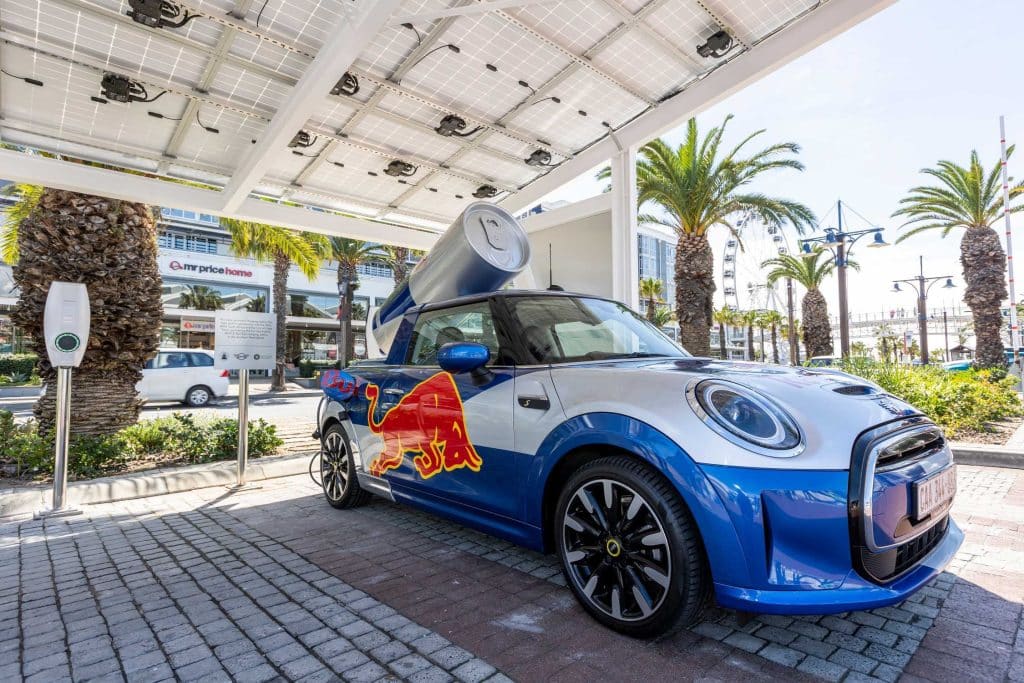In South Africa, the city of Cape Town is getting a new charging station for electric vehicles. The Austrian multinational energy drink company Red Bull and the German BMW Group’s Mini car manufacturer recently inaugurated it. The solar-powered installation is the result of the eco-responsible approach of these two companies. It is expected to accelerate green mobility in this South African city prone to air pollution.
“We are motivated by the potential for creative ways to play our part in protecting the planet. With the first stand-alone public solar charging unit in Cape Town, in collaboration with Red Bull, we are showing our commitment to sustainable energy solutions,” says Shaun Willis, Mini South Africa’s director. The company will introduce three new models by 2030, including the “Mini Cooper Electric”, with the aim of conquering the African market for electric vehicles charged by renewable energy.
The initiative has been well received by the Cape Town municipality in a context marked by load shedding and soaring fuel prices exacerbated by the war in Ukraine. Faced with this situation, the South African government is putting all solutions on the table, including the deployment of electric minibuses to facilitate public transport. This is what the municipality of Stellenboch is currently preparing, where the 22,000 or so inhabitants have to deal with the air pollution generated by thermal vehicles on a daily basis.
Read also-SOUTH AFRICA: Eleksa to conquer the electric vehicle market
The project, implemented by South African mobility company GoMetro in collaboration with technology solutions provider MiX Telematics, will complement the “transport on demand” offered by Estonian platform Bolt. The latter has announced that it will deploy its electric cabs as early as 2023 in several cities, including Johannesburg, at a total cost of $696 million, financed by a fundraising round in 2021.
Benoit-Ivan Wansi
